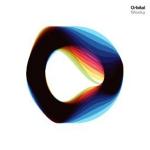
Orbital Wonky
(ACP)
The noughties were not Orbital’s decade. By the time of their last pre-split album The Blue Album in 2004, the glory days of the rave scene which spawned the band were well over a decade ago. That record and its predecessor, 2001’s The Altogether, served to alienate the Hartnoll brothers from their core audience who had moved on, the zeitgeist in electronic music turning away from the massive raves and festival headline slots, to more intimate, insular and somewhat darker terrain. These weren’t bad albums by any means, but they felt out of time – the music had moved on, but Orbital still trod familiar ground.
Revivals and retrospectives being de rigueur in music and culture these days, it is perhaps no surprise that one of the nineties’ premier dance music acts has chosen to return to the fray with what is certainly their best album since 1999’s The Middle of Nowhere. The good news is that Orbital have not yielded to any kind of pressure to make their ‘dubstep’ album, but instead stayed true to the sound and feel of the music that made their 90s output such a joy. They clearly still have the passion for what they do, despite the five years since their last album, as Wonky in no way feels retro or like a cash-in. In fact, it’s a remarkably fresh sounding album, full of brilliantly constructed and composed songs that sound like, well… Orbital. Their trademark method of gradually building layers of sound in a steady accretion remains, driving tracks forward relentlessly towards their crescendos. It’s a method that few dance producers utilise these days, being a distinctly 1990s trope, but when it’s done with as much conviction and flair as here, that seems a shame. It’s not as if the brothers ignore today’s trends however, as the best tracks here (for example Stringy Acid) combine the stadium-rave of yesteryear with judicious nods to contemporaneity. New France is more Techno-oriented, and is built around a vocal by Zola Jesus to add an up to date Goth-lite twist. Meanwhile album highlight Wonky features a wonderfully aggressive vocal from Birmingham MC Lady Leshurr, a collaboration that may have raised a few eyebrows but that actually works brilliantly. The only misfire really is Beelzebub, a possibly misguided attempt at the more laddish end of dubstep, with breakbeats going off in all directions. Its frenzy doesn’t sit well with the meticulous constructions elsewhere on the album, at odds with the precision of other tracks.
That said, Wonky is a very structured album, and although quality control may lapse slightly toward the end, it deserves to be considered a triumphant return. While not of the same calibre as their trio of classic 1990s albums (Orbital 2 – a.k.a. ‘The Brown Album’, Snivilisation and In Sides) Wonky nevertheless contains enough class to appeal to their hardcore fanbase – veterans of the 90s rave scene now settling nicely into middle age with kids and a mortgage – as well as tempting young music aficionados of today, many of whom would not have been alive when Orbital made their first records, to lend an ear or two. Welcome back, boys.
23 July, 2012 - 08:07 — David John Wood